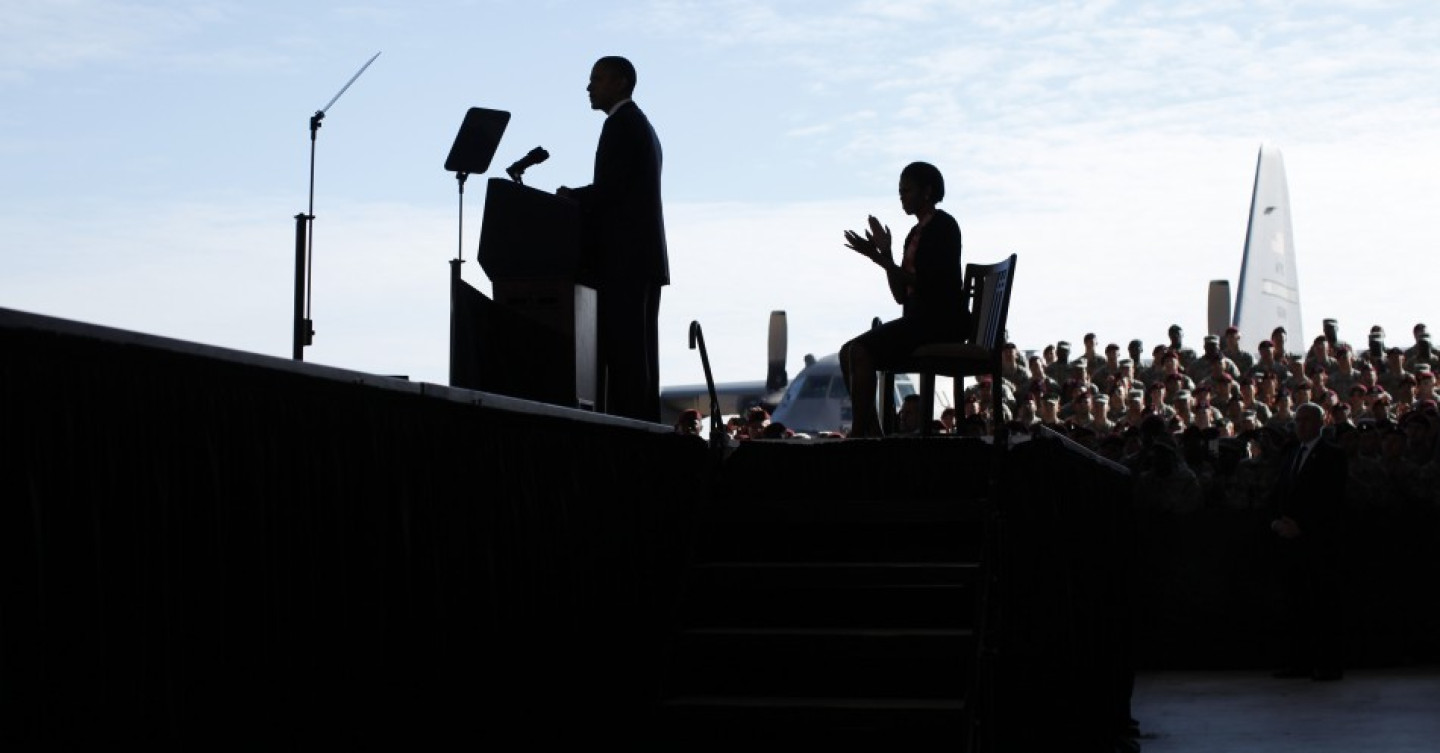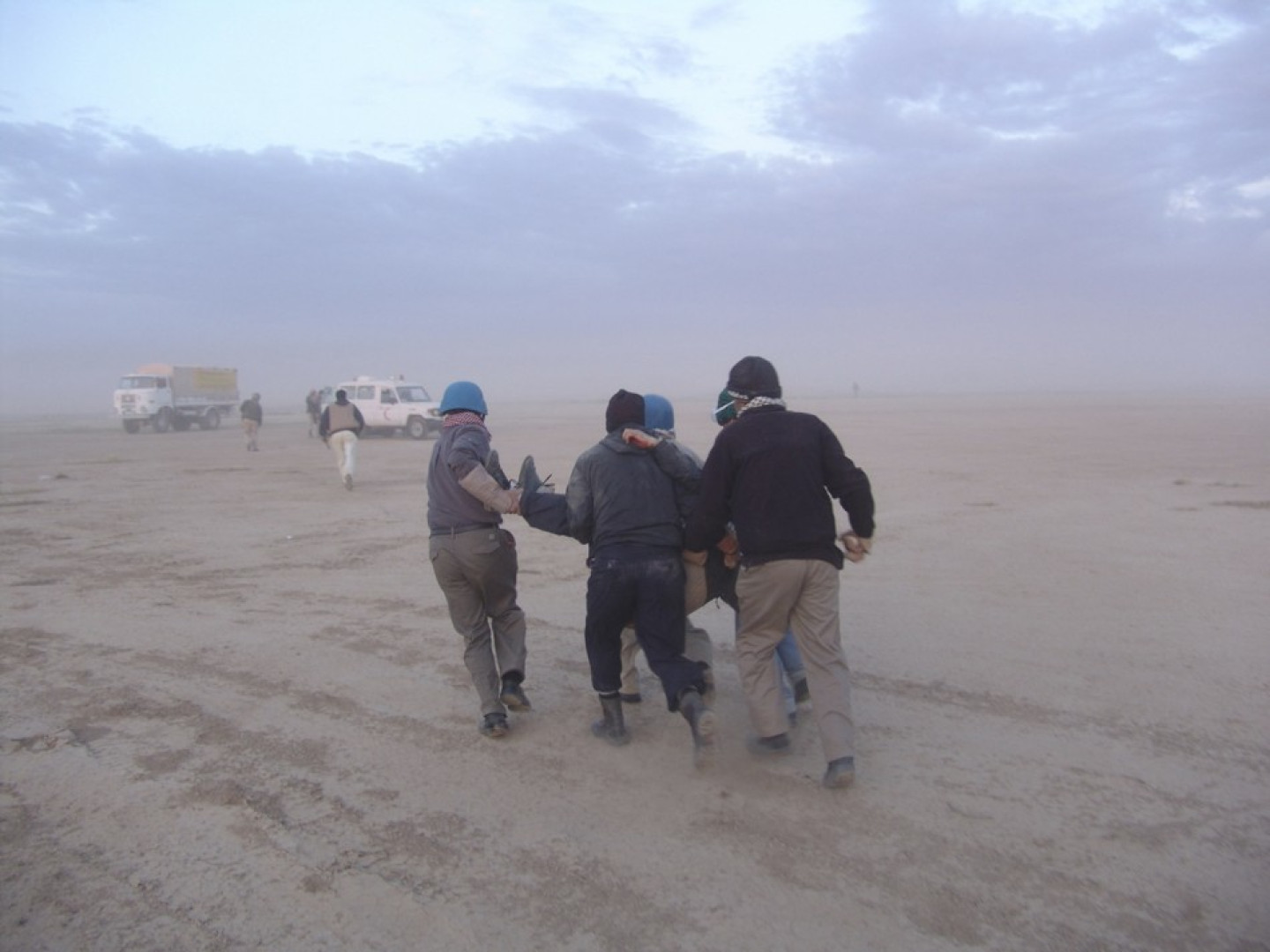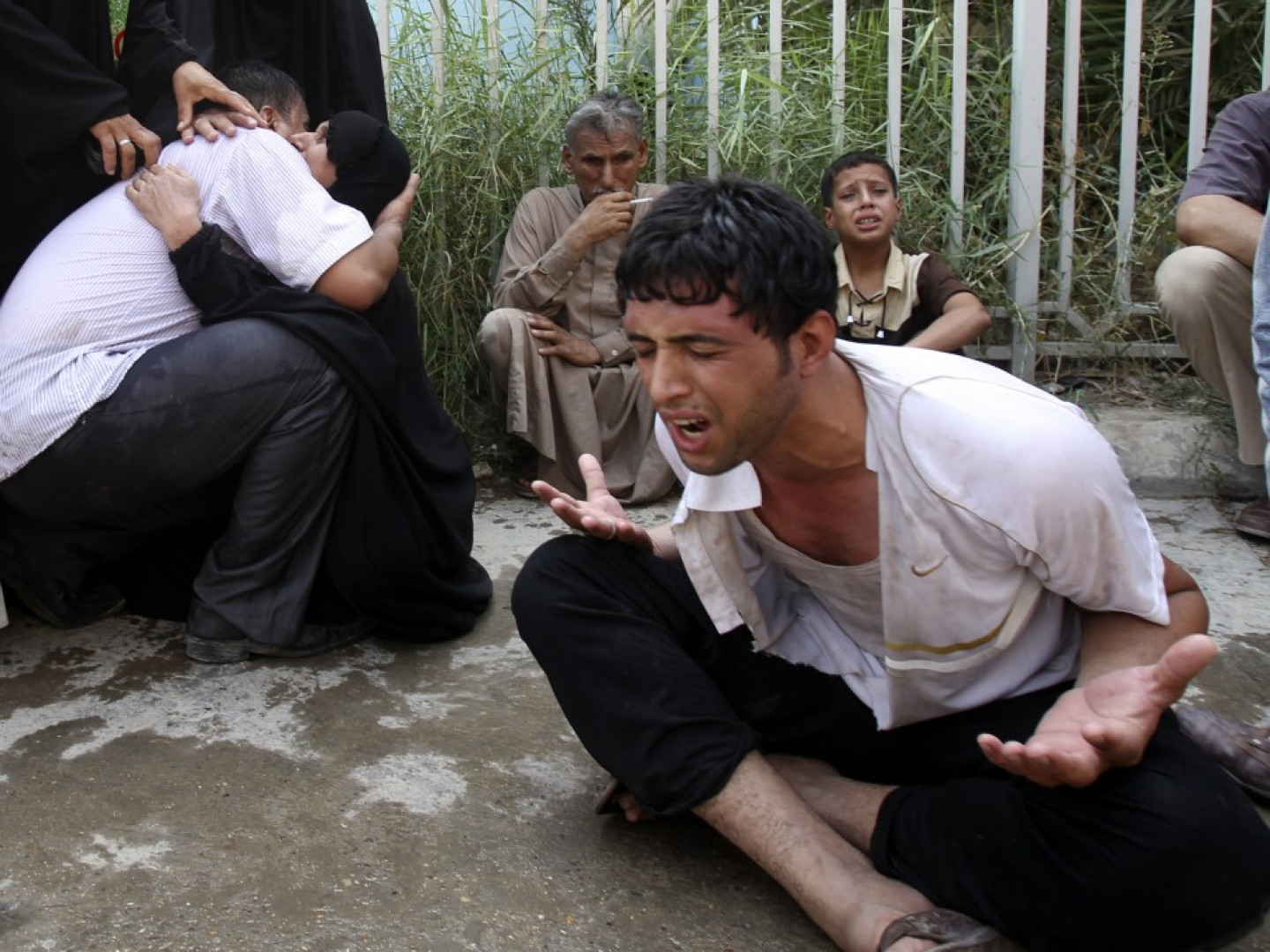For the Soldiers Will the Iraq War Ever be Over?

President Barrack Obama officially "welcomed home" the troops from Iraq, thus ending almost nine years of conflict. Cheered and applauded, the commander-in-chief praised his troops for "success of the mission."
British troops pulled out of Iraq in 2009, but for many a personal battle with mental health problems and severe injuries will continue for a lifetime.
The Commons Defence Committee has raised concerns over the future care of troops returning from service with severe injuries and mental health problems.
MPs said there was a "question mark" over whether the government had fully understood the scale of the demands on services in the coming years.
In a report on military casualties following the introduction in May of the Armed Forces Covenant, which sets out the "moral obligation" to support service personnel, the MPs praised "the first class medical treatment" available but questioned whether it was sustainable.

MPs also called on the government to act "urgently" to exclude armed forces compensation - paid to injured personnel - from consideration when means-tested benefits are assessed.
Ministers have indicated the practice could be reformed next year but the committee warned that "there is a risk that in the short term some members of the armed forces might be disadvantaged" without swift reforms.
The committee said that while the Ministry of Defense provided "outstanding care" in many areas "this cannot always be said for the support it gives to families".
It criticised the lack of support for children following the death or severe injury of a relative and urged the department to "look again" at its support services.
MPs also raised fears that the Government's reforms of the NHS - the largest shake-up in its history - will hit the future care of troops.
"We are concerned that the arrangements put in place by the MoD for the transition of personnel may be disrupted by the future reorganisation of the health service in England," the report states.
They also suggested that charities may be paying for projects that the MoD should be funding and warned that donations to organisations are likely to fall when troops are withdrawn from Afghanistan.
And the committee said it was "unclear" if the MoD's approach to the misuse of alcohol was "punishment" or "treatment" and called on it to do more to tackle heavy drinking, including carrying out a study on drinking behaviour.
It warned that the department had "yet to recognise the seriousness" of the alcohol problem and "must review its policy in this area."
Committee chairman James Arbuthnot said: "We, as a committee, have seen how determined our injured servicemen and women are to achieve the fullest possible recovery from their injuries.
"They see it as duty to get better and to return to their units if at all possible.
"And we have been impressed by the brave and skilful personnel, both military and civilian, who are providing the medical care that our armed forces need.
"But we need to have the confidence that such specific treatment, for injuries hardly ever seen in the general NHS experience, will continue long after an individual's retirement and into old age."

The Coalition has committed £7.2 million to mental health services for forces veterans and £15 million to prosthetic care improvements for amputees.
Defence Personnel Minister Andrew Robathan said: "The medical care that is given to our injured personnel is among the best in the world and I am particularly pleased this has been recognised by the House of Commons Defence Select Committee.
"The MoD has made significant investment in healthcare, the welfare and needs of service personnel and their families.
"Due to improvements in surgical interventions at all stages of the care pathway, from the battlefield to the hospital, we undoubtedly have more survivors than even five years ago.
"I am delighted that the committee has highlighted the excellent work that the Defence Medical Services Staff do every day, as well as all those that support injured service personnel's road to rehabilitation or transition to civilian life.
"I cannot overstate the dedication of the medical staff working at Camp Bastion, the Queen Elizabeth Hospital Birmingham, Headley Court, and in the single services' recovery units. I commend the committee's tribute to them. We also fully acknowledge the role of the charitable sector in delivering these capabilities.
"There is always more to do and we will carefully consider the committee's specific recommendations as we strive to fully meet and sustain our commitment to wounded, injured and sick personnel under the Armed Forces Covenant."
© Copyright IBTimes 2024. All rights reserved.





